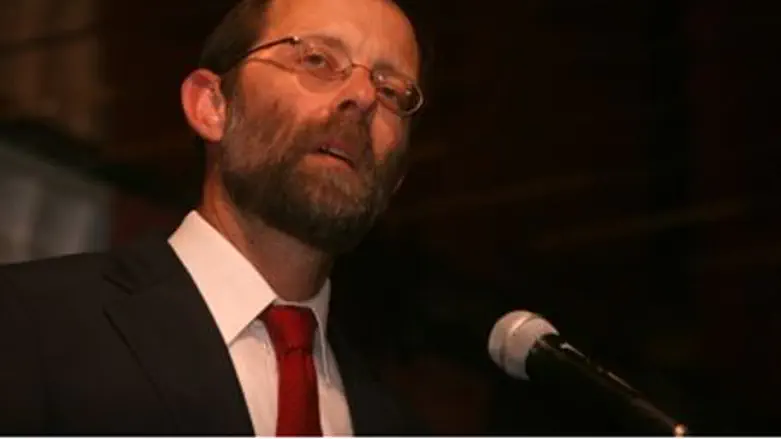
MK Moshe Feiglin (Likud) said Sunday that Israel's policy on the Iranian nuclear threat has “collapsed” and that the perceived legitimacy of an Israeli strike on Iran has diminsihed.
"We are witnessing, at this moment, the collapse of the Israeli conception as regards the Iranian nuclear threat,” Feiglin told nana10 news. “In historical terms, this collapse is more grave than the collapse of the preconception that led to the Yom Kippur War. The idea of turning this problem into an international problem contradicts the entire Zionist concept.”
Feiglin said that the intenational community itself expected Israel to respond to Iran's threats, but this response never materialized. “Instead, came a wave of pleading with the world. And the world responded as it always does when the Jews ask the nations of the world to protect them. We have lost this understanding – that our fate must remain in our hands. The legitimacy for an Israeli attack is diminishing instead of growing.”
"There is no difference between America and England of the 40s and American and England of the 2000s,” Feiglin explained. “But what is on the agenda now – and this is not being discussed so much in Israel – is the reactor in Dimona, more than the reactor at Bushehr. This is a complete conceptual collapse.”
Feiglin stressed that he is “not calling for heads to roll” and not singling out anyone specific in his criticism – only to understand that the Israeli policy has failed and must be replaced with a new approach. “We need to go back and take responsibility upon ourselves and only upon ourselves,” he said. “No one will attack instead of us – not the Americans and not anyone else. The attempt to bury our heads in the sand does not save blood – it does the opposite.”
Feiglin recently warned that “a catastrophe” is imminent and that predicted that he would be “sitting in the prime ministerial sukkah” by next sukkot. While Feiglin has challenged Binyamin Netanyahu for leadership of Likud several times in internal Likud elections, in the last two years he has said that he accepts Netanyahu's leadership and respects Netanyahu.
